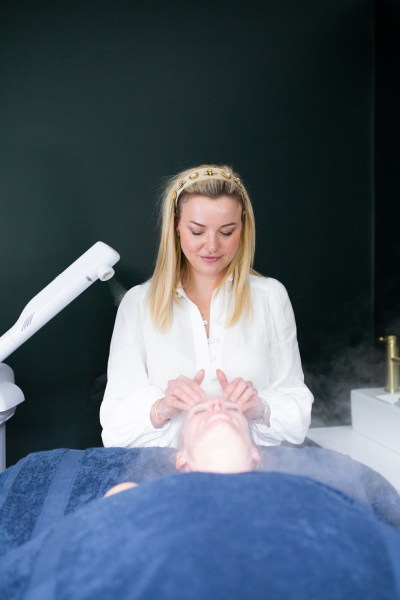Seven ways diet influences skin health, appearance and barrier resilience – according to Dermal Therapist, Isabella Loneragan.
The saying “you are what you eat” rings especially true when it comes to skin health, appearance, and resilience, as emphasised by award-winning skin and dermal therapist, Isabella Loneragan. With nearly two decades of experience in skin health and cosmeceuticals, Isabella highlights the significant impact that diet has on skin, reinforcing that skincare products, no matter how advanced, work best when complemented by a nutrient-rich diet.
“No matter the volume of skincare products you use or expensive beauty treatments you regularly undergo, your skin reflects your overall health. Your diet directly impacts your skin from the inside out, and so the nutrients you consume, in combination with a quality skincare regime, massively influence your skin’s ability to repair itself,” says Isabella.
Nutrition as the Foundation of Skin Health
Loneragan draws parallels between muscle-building and skin health, emphasising the necessity of specific nutrient-rich foods in combating signs of ageing and mitigating common skin conditions like eczema and acne. “Just as protein is pivotal to building muscle, certain foods are essential to empowering your skin to combat signs of ageing and wearing off numerous adverse skin conditions,” she explains.

“Of course, we all know that moderation is key when it comes to diet. However, I believe the positive effects of good foods on skin are widely underestimated.”
The Skin Benefits of a Balanced Diet
Isabella summarises how diet influences skin health, appearance, and barrier resilience, noting key areas:
- Skin Hydration and Moisture: Foods rich in water content, like cucumbers and watermelon, keep skin hydrated from the inside out. Healthy fats from avocados and nuts help maintain the skin’s natural oil barrier, crucial for moisture retention.
- Anti-Ageing Effects: Antioxidant-rich foods such as berries, dark chocolate, and leafy greens combat free radicals that cause premature aging. Vitamins C and E, in particular, support collagen production and protect against sun damage.
- Clearer Complexion: A diet low in processed sugars and high in whole foods can reduce acne and inflammation. Probiotics, found in yogurt and fermented foods, maintain a balanced gut microbiome, which is linked to clearer skin.
- Skin Healing and Repair: Protein-rich foods like lean meats, eggs, and legumes provide essential amino acids for skin regeneration. Zinc, found in seeds, nuts, and meat, aids in wound healing and reduces inflammation.
- Protection Against Environmental Damage: Foods rich in carotenoids, like carrots and tomatoes, help protect the skin from sun damage. Omega-3 fatty acids, found in fish and flaxseeds, have anti-inflammatory properties that can reduce UV exposure’s impact.
- Balanced Oil Production: A diet rich in healthy fats and low in refined sugars helps balance oil production, reducing both dry skin and oily breakouts.
- Bright and Even Skin Tone: Foods high in vitamin C, such as citrus fruits, contribute to a brighter and more even skin tone by reducing pigmentation and enhancing collagen production.
Combatting Common Skin Conditions Through Diet
For those struggling with specific skin conditions, Isabella recommends incorporating the following foods:
- Acne: Low-glycemic foods, omega-3 fatty acids, and zinc-rich foods reduce inflammation and oil production, combating acne from within.
- Eczema: Probiotics and anti-inflammatory foods can reduce eczema flare-ups by improving gut health and lowering systemic inflammation.
- Psoriasis: Omega-3 fatty acids and antioxidant-rich foods help reduce psoriasis symptoms by mitigating oxidative stress.
- Rosacea: An anti-inflammatory diet, along with avoiding trigger foods like spicy dishes and alcohol, can help manage rosacea symptoms.
- Dry Skin: Healthy fats and hydrating foods contribute to moisture retention and prevent dryness.
- Hyperpigmentation: Vitamin C and beta-carotene promote skin tone uniformity and protect against sun damage.
Isabella, how should clinics approach discussing nutrition in their skin consultations? Especially if they don’t have the scope or qualifications in nutrition?
There’s no denying the link between diet and skin health, so nutrition should always be discussed as a valuable addition to talking points during skin consultations.
Even if a clinic representative doesn’t have a formal qualification in nutrition, he or she can approach the topic responsibly and in a way that is within the professional limits of a skin clinician.

It’s about educating and empowering your clients to take a holistic approach to their skin health. You can achieve this by simply focussing on the basics – that is, the widely accepted nutritional principles related to skin.
For example, do explain the skin benefits of a balanced diet rich in fruits, vegetables and adequate hydration; but don’t attempt to address complex nutritional concerns of a client – like restrictive diets or supplements because such specific concerns should only be addressed by qualified nutritional experts.
You can do this by using language that makes it clear that the information you’re imparting is general and not a substitute for professional dietary advice. For example, phrases like “It might be beneficial…” or “You may want to consider talking to a nutritionist about…” can be helpful.
When it comes to certain micronutrients, is consuming them in diet more beneficial than topical application for skin (such as Vitamin C or Vitamin E etc.)?
Not necessarily, because dietary consumption and topical application have their unique benefits for skin health.
Consumption through diet supports skin health holistically – or from inside of the body, whereas topical application targets specific skin concerns. The results of topical application can often be seen more quickly compared to dietary intake, though they are usually more superficial.
For optimal results, a balanced diet rich in micronutrients combined with appropriate topical products provides comprehensive skin care benefits.
Some people might respond better to one method over the other, depending on their skin type, existing conditions and overall health – but a combination is generally best.
Vitamin C consumed through diet plays a crucial role in collagen synthesis, has antioxidant properties that help to neutralise free radicals that can cause skin ageing and damage, and regular intake of vitamin C through diet can improve skin texture, reduce fine lines, and enhance overall skin tone in the long-term.
When applied topically, vitamin C can directly target specific skin concerns like hyperpigmentation, dullness, and fine lines. It can brighten the skin, even out skin tone, and protect against environmental damage.
Similarly, vitamin E consumption through diet can have positive impacts on the body’s immune system, supporting the skin’s natural defences and its ability to heal scars and wounds naturally.
When applied topically, vitamin E’s benefits may be more immediate but not necessarily as helpful in the long term for healing wounds and scars.
Read our latest issue below:
There are 5 ways you can catch up with SPA+CLINIC
- Our quarterly print magazine, delivered to your door. Subscribe here.
- Our website, which is updated daily with its own completely unique content and breaking news.
- Our weekly newsletter – free to your inbox! Subscribe here.
- Our digital magazine – click here to view previous issues.
- Our social media – see daily updates on our Instagram, Facebook & Linkedin




